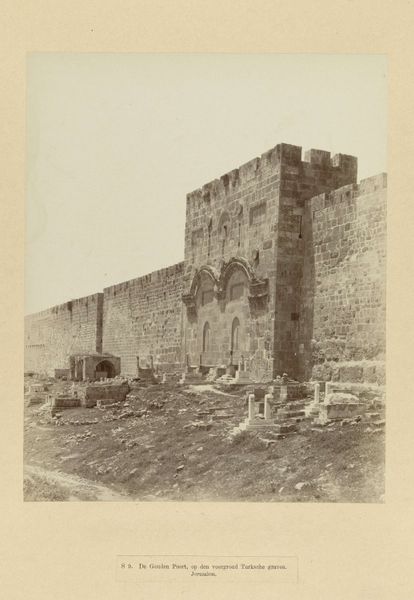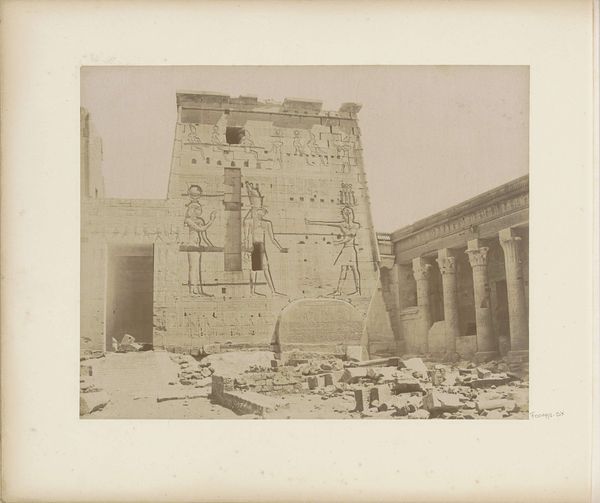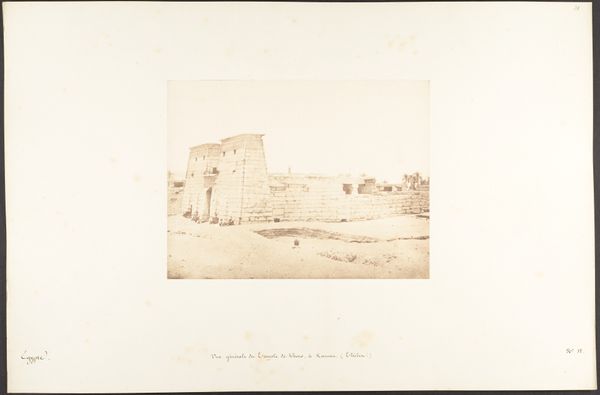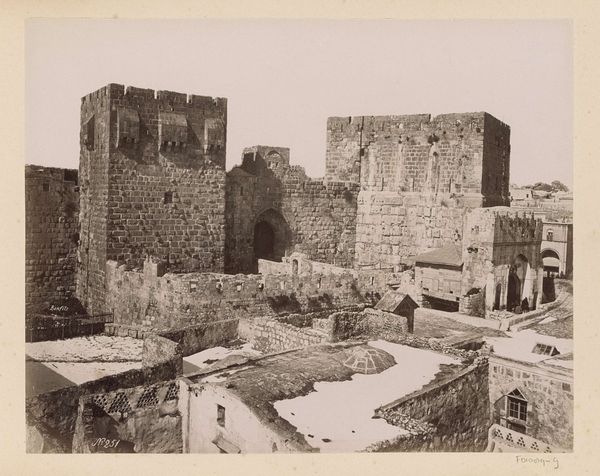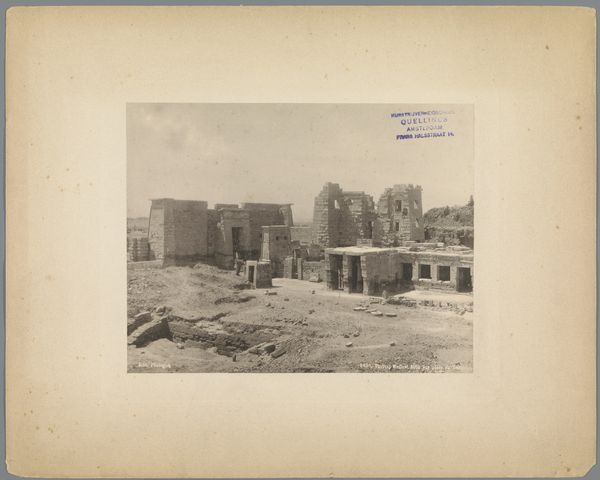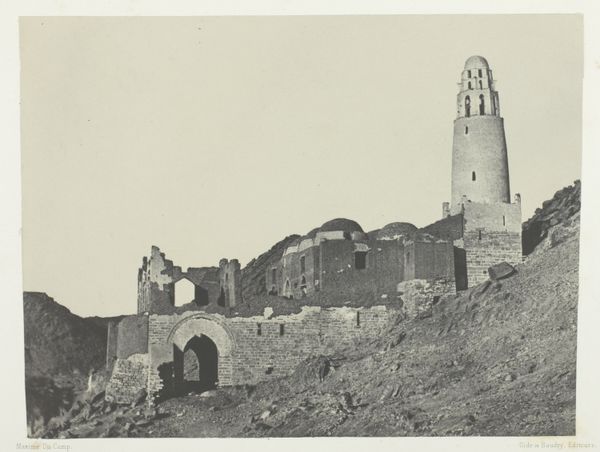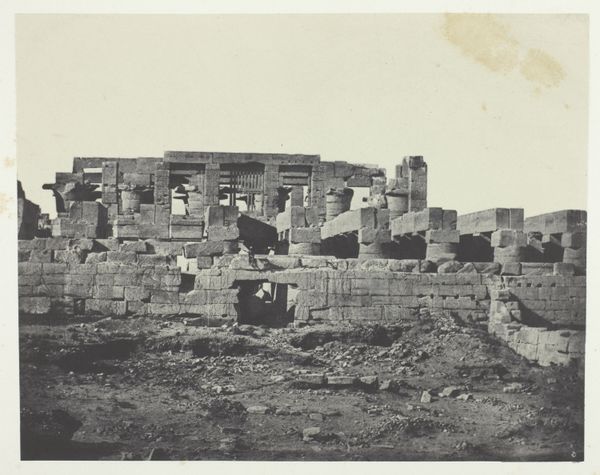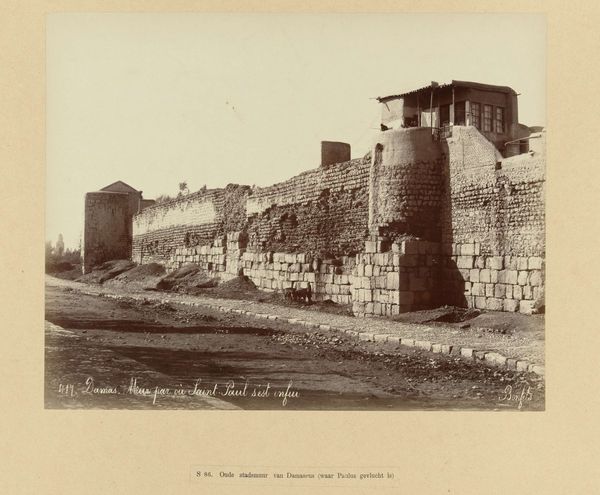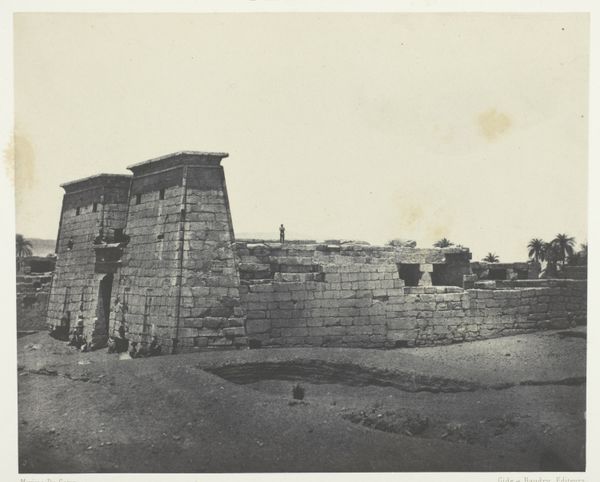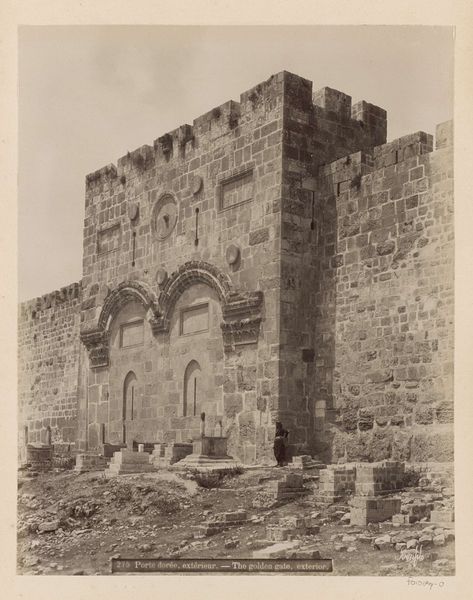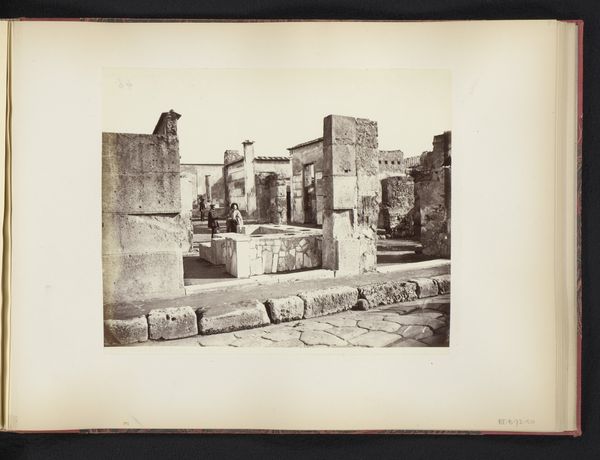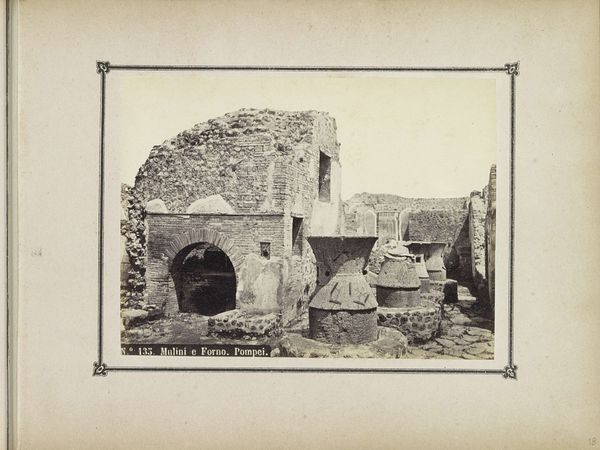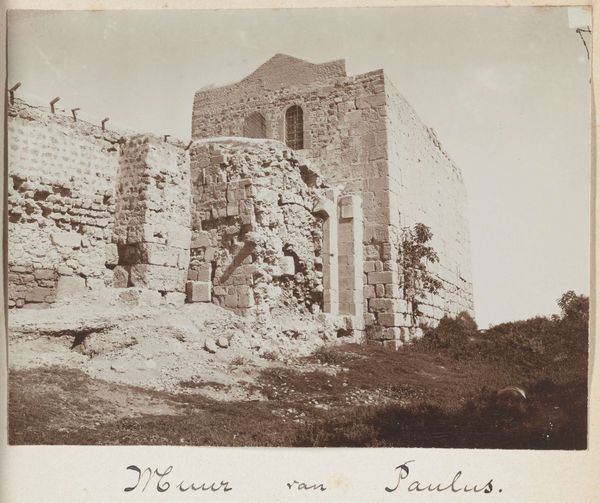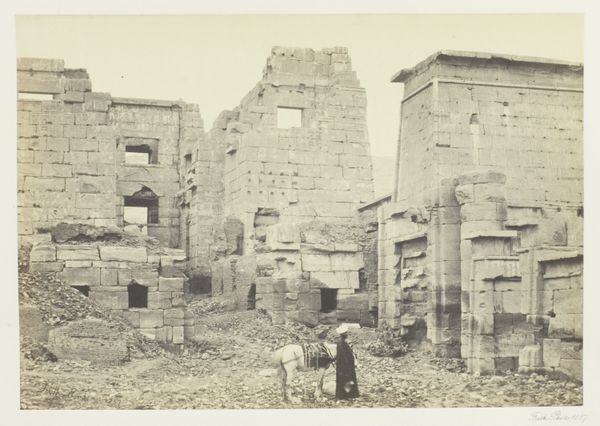
photography, gelatin-silver-print
#
landscape
#
ancient-egyptian-art
#
photography
#
historical photography
#
orientalism
#
gelatin-silver-print
#
19th century
#
history-painting
Dimensions: height 198 mm, width 256 mm, height 466 mm, width 555 mm
Copyright: Rijks Museum: Open Domain
This albumen print of the remains of the temple of Luxor was created by Antonio Beato in the late 19th century. As a photographer of Italian origin, Beato navigated the complex colonial landscape of Egypt, capturing its ancient monuments for European audiences fascinated by the ‘Orient’. This photograph isn't just a neutral record; it’s an intersection of historical narratives and power dynamics. The Temple of Luxor, built around 1400 BCE, represents the power and sophistication of ancient Egyptian civilization. However, in Beato’s photograph, it is presented as ruins, implicitly contrasting with the modern, European gaze that frames it. Notice the way the mosque is situated adjacent to the ancient temple, representing how different cultures and religions have layered themselves upon this site. It prompts us to consider whose stories are told, and whose are left out. What do we see when we look at this image? And what remains unseen?
Comments
No comments
Be the first to comment and join the conversation on the ultimate creative platform.
